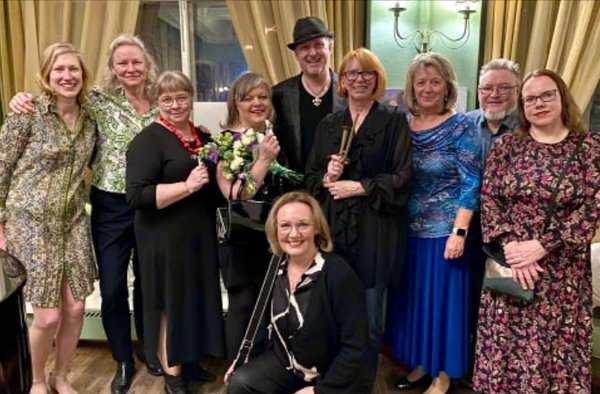Jorma Pöysä / Kauppalehti 29.11.2016
Estonia's new president Kersti Kaljulaid is a staunch supporter of the liberal market economy. According to Kaljulaid, Estonia that has sunk into a slow growth similar to Finland will not be raised by centralized agreements holding back wage increases, but by selectively supporting the rise of the new economy where it is possible.
One of the new competitive advantages will be in the Estonian e-Residency, and the other one will be connecting the service routes developed jointly between Estonia and Finland next spring.
Kaljulaid believes that now there is a need to analyze where we are going. “I'll leave the Finnish analysis to the Finnish experts, but I think we Estonians have fallen into the trap of median income," the President contemplates the reasons for slow growth from the beautiful pink presidential palace located in Kadriorg Park. “International companies do not come here anymore to manufacture conventional products for familiar markets using traditional technology because the work would be cheaper here. For them, we are no longer the solution for their problems of facing cost competitiveness. Along with the changing situation, we ourselves must become innovation leaders. And this is happening: the ICT sector is already producing 4.6 percent of our gross domestic product. There is light at the end of the tunnel.”
Estonia's average gross salary is EUR 1100 per month. Unit labor costs rose by 7.2 percent last year and are projected to continue to rise by 6.2 percent this year.
The growth of gross domestic product will this year remain within only a small percent, and the EU Commission predicts its acceleration next year to 2.3 and the following year to 2.6 per cent.
"We are in a transition, which leads to the renewed structure of the economy, in which higher wage levels are tolerated,” the president said. "Wages are relatively high and the jobs, which generate very little added value, are in trouble. We need to find new technologies and jobs that create more added value. We have to market more, go to new markets and create new brands. There is no need to turn the development backward and to limit the increase in wages administratively," says Kaljulaid. "The ICT sector, for example, can withstand higher wages, as in Finland. We also know that the low-income sectors will eventually benefit from the success of the high-income sectors. Sure, there are sectors that are in trouble, but the new government agreement reflects it to some extent.”
Kaljulaid feels that a great opportunity for Estonia is the fact that the country has created a globally unique e-government, which is also open to nationals of other countries.
Every reputable citizen of the world can get a digital identity in Estonia reasonably fast. Once the identity has been received, its holder, inter alia, can set up a company in Estonia but also do much more. Estonian e-citizenship can be applied for electronically online. Upon acceptance of the application, the e-resident receives an e-Residency card with a chip. Once registered, a new e-resident can communicate electronically with the Estonian authorities and, for example, set up a business. The company’s dealings can be managed electronically from anywhere in the world. Also, bank transactions are an easy deal with e-Residency.
Alongside e-Residency, Kaljulaid considers it extraordinarily important that Estonians and Finns have developed jointly the Estonian national communications platforms based on the X-road, the service routes of which will be connected next spring. Compatibility is unique even on a global scale. The interlinking of Estonian and Finnish service routes allows for a smoother, faster and more secure exchange of information between different organizations. Initially, the tax authorities and the social security authorities will benefit from it, but it is also a big opportunity for our companies.
“The fact that the information systems of two independent states are linked so closely together, is a competitive advantage for both of us," says Kaljulaid. “This has not been done anywhere else. We will be a great testing place for companies that want to know how to act in such a market and in the digital environment. We will together create a global interest in our region. It is important that companies are able to turn operating in the environment of low administrative costs, into a profit. Perhaps this way, both of our countries will get out of stagnation."
Estonian e-citizenship and service routes are featured prominently, as Kaljulaid takes part in Slush, organized for the ninth time in Helsinki. In Slush, it is also possible to apply for Estonian e-citizenship, if you remembered to take your passport with you.
President Kersti Kaljulaid's Interview for Finnish Business Newspaper Kauppalehti: 'Digital' Supports a Return to Growth
Rahvusvahelised uudised | 30 Nov 2016 | EWR
Rahvusvahelised uudised
TRENDING


























